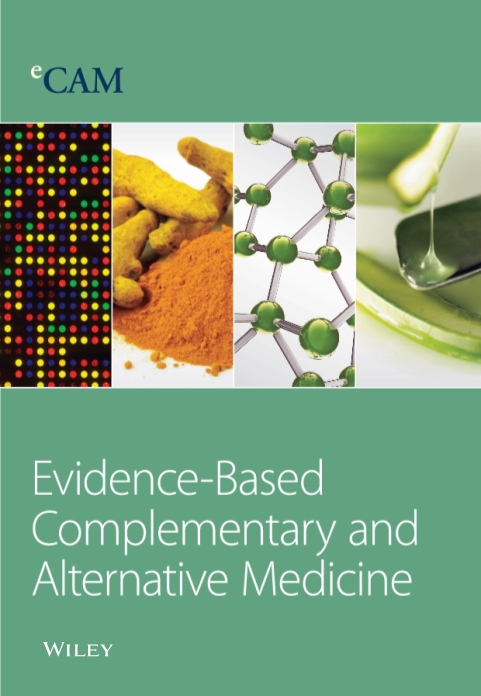绿茶叶和迷迭香提取物可选择性地诱导三阴性乳腺癌细胞和癌症干细胞死亡,并增强普通化疗药物的疗效
4区 医学
Q2 Medicine
Evidence-based Complementary and Alternative Medicine
Pub Date : 2024-01-25
DOI:10.1155/2024/9458716
引用次数: 0
摘要
虽然在癌症治疗的化疗药物开发方面取得了令人难以置信的医学进步,但其中大多数药物的作用机制并不具有选择性,从而导致了不良反应。鉴于这些疗法具有全身毒性,因此不适合长期使用。天然保健品(或称 NHPs)可以提供一种方法,有选择性地针对癌细胞的氧化和代谢弱点。白茶(Camelia sinensis)和迷迭香(Salvia rosmarinus)这两种天然提取物的药用特性已被广泛研究。然而,它们的抗癌活性和作用机制尚未完全阐明。我们在 MDA-MB-231 细胞(一种三阴性乳腺癌细胞系)中对这两种提取物的癌细胞杀伤能力及其与常见化疗药物的相互作用进行了体外研究。在单独或与顺铂和紫杉醇联合使用 Synthite Industries Limited 提供的 Synthite 茶提取物(STE)和迷迭香提取物(RE)处理后,进行了细胞死亡测量、细胞凋亡的形态学和生化特征描述、作用机制(线粒体去极化和氧化应激)以及免疫荧光测定,以估计癌症干细胞(CSC)的百分比。这项研究的主要发现是,单独使用STE和RE对TNBC具有非常有效的抗癌活性,更重要的是,将这两种提取物与顺铂和紫杉醇联合使用可使癌细胞敏感,从而增强细胞死亡。此外,研究还发现,癌细胞干细胞对单独使用 STE 或与 RE 联合使用 STE 都很敏感,与单独使用化疗药物相比,癌细胞干细胞对联合疗法表现出更高的敏感性。这些观察结果的意义在于,STE和RE作为耐受性良好的NHPs,在联合使用时有可能增强目前化疗药物的疗效,并防止TNBC复发。本文章由计算机程序翻译,如有差异,请以英文原文为准。
Green Tea Leaves and Rosemary Extracts Selectively Induce Cell Death in Triple-Negative Breast Cancer Cells and Cancer Stem Cells and Enhance the Efficacy of Common Chemotherapeutics
While incredible medical advancements in chemotherapeutics development for cancer treatment have been made, the majority of these are not selective in their mechanism of action, leading to adverse effects. Given the systemic toxicity associated with these therapies, they are not well suited for long-term use. Natural health products, or NHPs, may provide a way to selectively target the oxidative and metabolic vulnerabilities in cancer cells. White tea (Camelia sinensis) and rosemary (Salvia rosmarinus) are two natural extracts that have been studied extensively for their medicinal properties. However, their anticancer activity and mechanism of action are yet to be fully elucidated. We have examined the extracts’ cancer cell-killing ability as well as their interactions with common chemotherapeutics in MDA-MB-231 cells, a triple-negative breast cancer cell line, in vitro. Cell death measurement, morphological and biochemical characterization of apoptotic cell death, mechanisms of action (mitochondrial depolarization and oxidative stress), and immunofluorescence assays to estimate the percentage of cancer stem cells (CSCs) were performed following treatment with Synthite tea extract (STE) and rosemary extract (RE), provided by Synthite Industries Limited alone and in combination with cisplatin and paclitaxel. The key findings in this study are that STE and RE alone demonstrated very efficient anticancer activity against TNBC, and more importantly, the administration of the extracts in conjunction with cisplatin and paclitaxel sensitizes cancer cells to achieve enhanced cell death. In addition, CSCs were found to be sensitive to treatment with STE alone and in combination with RE and exhibited greater sensitivity to combination therapies compared to chemotherapeutic alone. The significance of these observations is that STE and RE, well-tolerated NHPs, have the potential to enhance the efficacy of current chemotherapeutics when combined, as well as prevent relapse for TNBC.
求助全文
通过发布文献求助,成功后即可免费获取论文全文。
去求助
来源期刊
自引率
0.00%
发文量
1983
审稿时长
2.2 months
期刊介绍:
Evidence-Based Complementary and Alternative Medicine (eCAM) is an international, peer-reviewed journal that seeks to understand the sources and to encourage rigorous research in this new, yet ancient world of complementary and alternative medicine.
The journal seeks to apply scientific rigor to the study of complementary and alternative medicine (CAM) modalities, particularly traditional Asian healing systems. eCAM emphasizes health outcome, while documenting biological mechanisms of action. The journal is devoted to the advancement of science in the field of basic research, clinical studies, methodology or scientific theory in diverse areas of Biomedical Sciences. The journal does not consider articles on homeopathy.

 求助内容:
求助内容: 应助结果提醒方式:
应助结果提醒方式:


